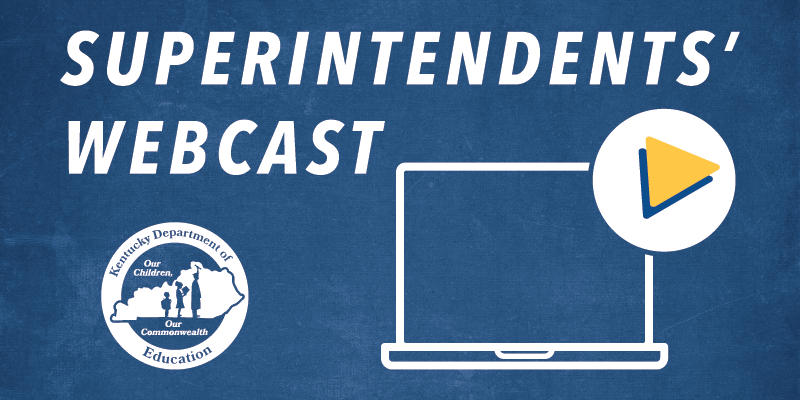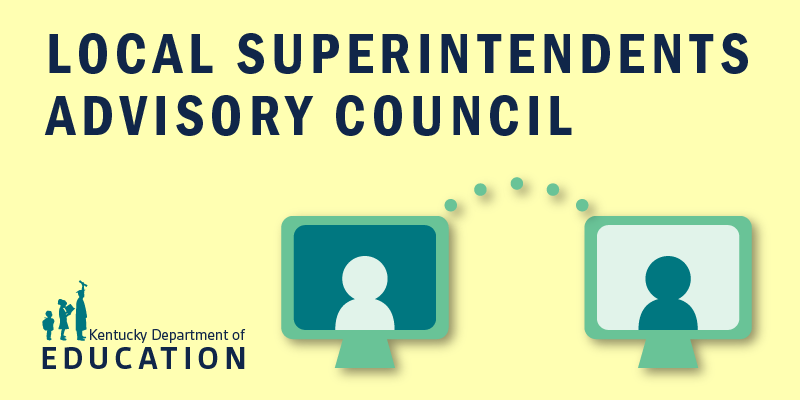
- Award amounts increase in proportion to higher grade-point averages, which could be affected if districts issue pass-fail grades for courses completed under the Non-Traditional Instruction Program.
- Students who are taking dual-credit courses through Kentucky colleges and universities will receive letter grades for those courses that will be factored into KEES calculations, as all postsecondary institutions in Kentucky have stated that they will issue letter grades for dual-credit students.
By Mike Marsee
Officials from the Kentucky Department of Education (KDE) and the Kentucky Higher Education Assistance Authority (KHEAA) addressed questions on Kentucky Educational Excellence Scholarship (KEES) awards during a Special Superintendent’s Webcast on April 3.
KDE and KHEAA have been fielding questions on how the suspension of in-person classes and the move to non-traditional instruction (NTI) in Kentucky’s schools will affect the awards students receive under the KEES program, which provides scholarships to students who earn a grade-point average (GPA) of at least 2.5 in each year of high school.
Award amounts increase in proportion to higher grade-point averages, which could be affected if districts issue pass-fail grades for courses completed under the Non-Traditional Instruction Program.
Becky Gilpatrick, KHEAA’s director of student aid services, told superintendents that pass-fail grades will not be calculated in the grade-point averages used for KEES awards.
“Pass-fail grades are not looked at in KEES calculations,” Gilpatrick said. “If you want to look at pass-fail for the entire spring semester, that’s fine with KHEAA. We just can’t look at that coursework in our GPA calculation.”
Grading policies, including the decision of whether to issue letter grades or pass-fail grades, are determined by local school districts.
Gilpatrick also said schools and districts that institute a pass-fail grading option should notify KHEAA of their decision to do so, as should those that are exploring options for students to retake courses in future semesters.
She said students who are taking dual-credit courses through Kentucky colleges and universities will receive letter grades for those courses that will be factored into KEES calculations, as all postsecondary institutions in Kentucky have stated that they will issue letter grades for dual-credit students.
KDE Associate Commissioner Amanda Ellis said both KDE and KHEAA are responding to concerns that students might lose scholarship money during the closure period.
“There’s been a lot of concern over not harming kids, and we want to make sure we’re making the right decisions for our students,” Ellis said.
Also during the webcast, KDE Associate Commissioner Kelly Foster said the extension of the recommended school closure period and NTI to at least May 1 has highlighted the need for sharing best practices in non-traditional instruction.
“We really need to start thinking about best practices that we see across the state,” Foster said. “It’s really a time to look to your neighbors and see what’s working in districts that look like your district.”
David Cook, who coordinates KDE’s NTI Program, highlighted best practices that have been seen so far in seven areas: teacher-led, student-centered, technology-supported, project-based, performance-based, authentic assessment and participation.
He said KDE will continue to work to spotlight schools and districts where best practices are being employed.
VIDEO: Watch the entire April 3, 2020, Special Superintendents’ Webcast on COVID-19.
For more information about COVID-19:
- Kentucky Department for Public Health’s COVID-19 webpage
- KDE’s COVID-19 webpage
- COVID-19 Hotline (800) 722-5725




Leave A Comment